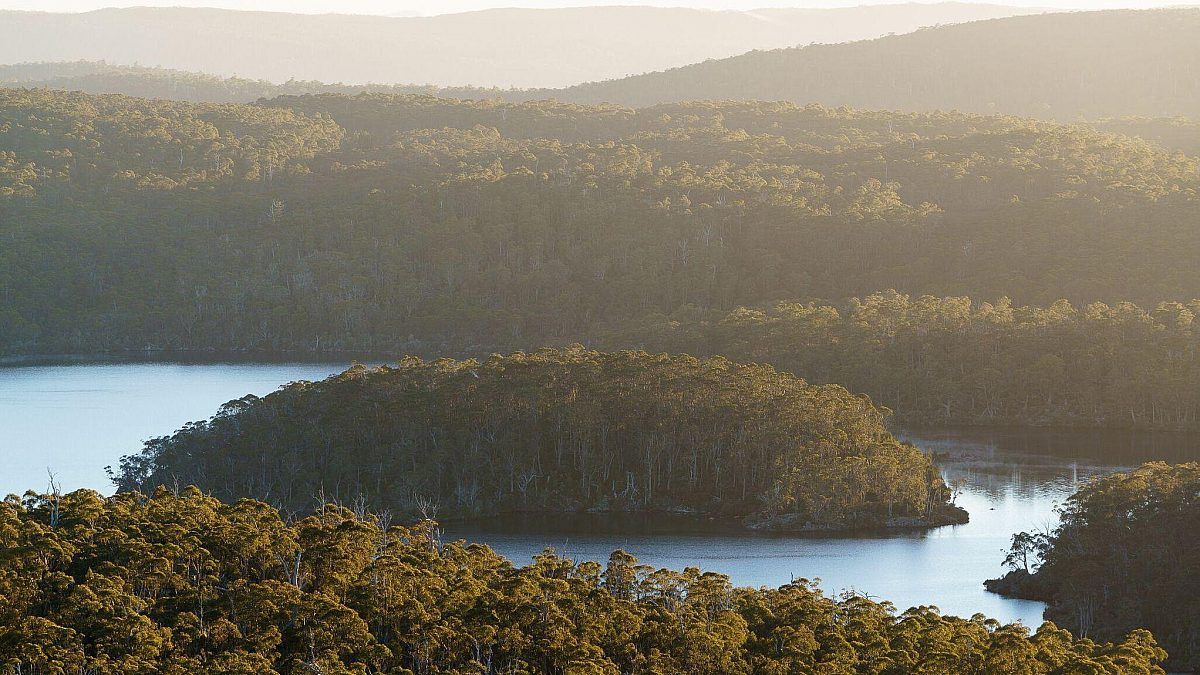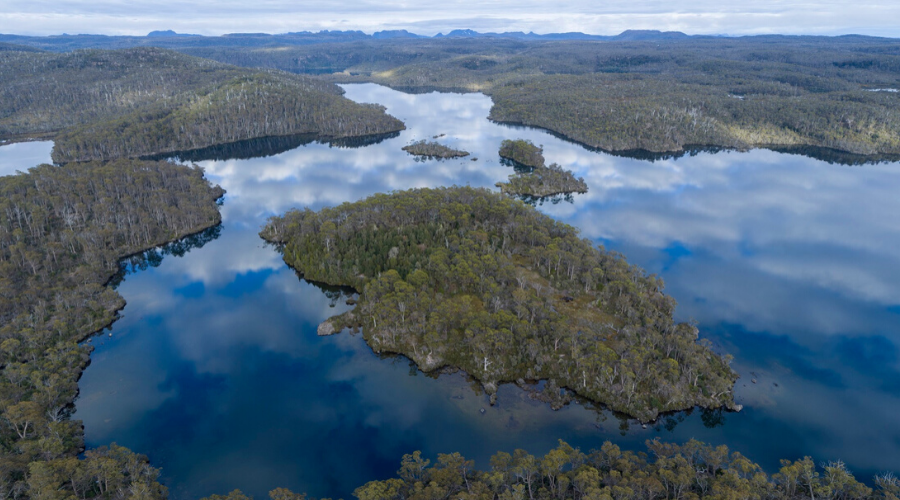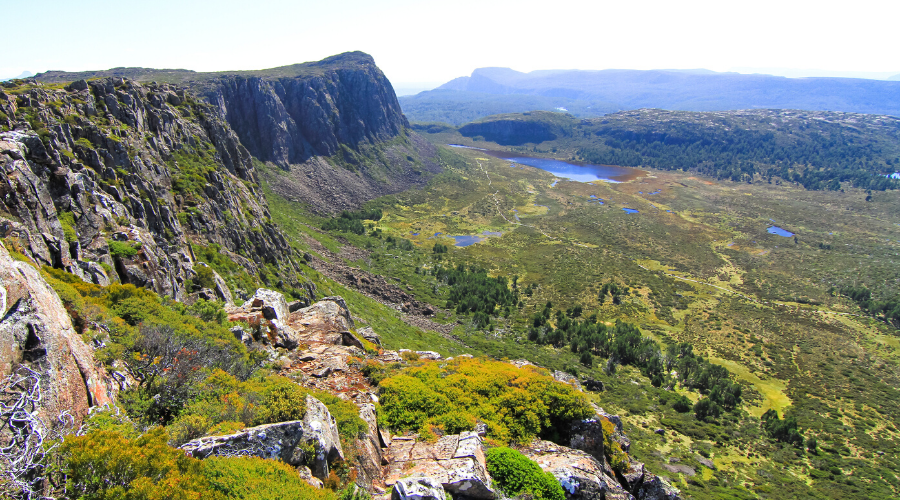
Supreme Court Challenge to protect Tasmania's wilderness
A backgrounder
In June and July 2020, the Wilderness Society is going to Tasmania’s Supreme Court as part of our campaign to protect the Tasmanian Wilderness World Heritage Area from exploitation, development and degradation.
The what
We are in court to appeal a decision made by Tasmania’s planning tribunal, which granted a permit for developer Wild Drake’s luxury, helicopter-accessed tourism development. The proposal is for it to be built at Lake Malbena, inside Walls of Jerusalem National Park and the Tasmanian Wilderness World Heritage Area (TWWHA).
The why
We are opposed to Wild Drake’s proposal primarily because of the impacts it would have on the wilderness values of this important area. The development would exclude existing users—people who have walked, played and fished in the area for generations—and effectively privatise an entire public, World Heritage island for private profit.
This proposal is the first of a large pipeline of similar, inappropriate tourism developments and projects lined-up for the TWWHA. We’re hoping that if we win this challenge, it will demonstrate that the current Tasmanian Parks and Wildlife system for assessing and approving proposals is inadequate and requires serious improvement. There’s a better way to do nature tourism in Tasmania. We think that any commercial tourism allowed in the TWWHA should ensure that the wilderness remains intact and protected.
The backstory
In early 2019, after receiving 1,343 public representations opposing development, Central Highlands Council refused to give the Lake Malbena proposal a planning permit. (Central Highlands is the planning authority responsible for Walls of Jerusalem National Park.)
Wild Drake appealed that decision to the Resource Management and Planning Appeal Tribunal. We joined that appeal to defend the Council’s decision to refuse a planning permit. After seven days of hearing involving numerous experts, in December 2019 the Tribunal decided that the proposal could proceed subject to conditions.

The primary basis for the Tribunal’s decision was that the Tasmanian Parks and Wildlife Service had already undertaken what is called a “reserve activity assessment” (RAA) for the proposal and given it conditional approval. The Tribunal found that it could rely on that decision rather than undertake its own assessment of whether the proposal was in accordance with the statutory TWWHA management plan. On this basis, the Tribunal found it was unnecessary to consider the extensive expert evidence that the Wilderness Society and the Council had presented about the impacts of the proposal on the values of the area.
Supreme Court case
We are appealing the Tribunal’s decision to the Supreme Court because we don’t believe that it can rely on the RAA process alone and fail to independently consider the impacts of the proposal on wilderness and other values. We will be arguing that such an approach is not consistent with the recent decision of the Federal Court where, in a parallel case concerning the Lake Malbena proposal, we took the Federal Government to court and won. (In that Federal Court case, the Court upheld our claim that the Commonwealth Government had not undertaken its assessment of the proposal in accordance with the Environmental Protection and Biodiversity Conservation Act 1999.)
How you can help
We are lucky to be represented by an excellent legal team, including lawyers from the Environmental Defenders Office, and two leading barristers. Unfortunately, going to court is expensive. You can help our fight to keep Tasmania’s wilderness protected by making a donation. We know it is a difficult time for many people—we are grateful for any contribution (big or small) you can make to help us keep up the fight.
The people
Any time the public has been given an opportunity to have a say about the Lake Malbena proposal, the vast majority (more than 99%) of people have been opposed to the development. This proposal has no social licence. Nor do most of the currently proposed commercial developments in our national parks. The Wilderness Society is part of an alliance of community groups, including fishers, walkers and conservationists, who want to keep national parks public, natural and protected.

The big picture
While Tasmania is leading the push, commercial development of national parks is a problem that’s happening across the country. The privatisation and degradation of national parks by and for profiteers and vested interests is happening by stealth.
The future
We would like to see Tasmania’s public World Heritage Area properly protected—even enhanced—for everyone to enjoy both now and into the future. Private commercial developments should be kept outside its boundaries, and in areas where local communities can reap the benefits. Most of the rest of Tasmania is available for tourism developments. Genuine ‘eco’ tourism developments don’t destroy the wilderness that attracts people from far and wide to visit Tasmania. A protected, enhanced TWWHA is fundamentally in everyone’s interest, including the interests of the burgeoning tourism industry. Ultimately, we hope that the State Government will change its “unlock the parks” policy from one of privatisation to democratisation and expansion so Tasmania sees a new generation of national parks.
Timeline: Lake Malbena campaign legal milestones
- 22 June 2017: Wild Drake re-submits Lake Malbena proposal to Tasmania’s Parks and Wildlife Service’s Reserve Activity Assessment (RAA) process
- 19 January 2018: lease and business licence agreement between Wild Drake signed in secret.
- 28 March 2018: Wild Drake refers proposal to Commonwealth Minister for Environment and Energy for EPBC Act assessment.
- 29 March 2018: public comment on the Referral commences and is closed on 17 April 2018. Fifty public submissions are received in this period.
- 5 July 2018: further public comment is invited again, including on a partly redacted Halls Island RAA, until 19 July 2018. A total of 886 public submissions concerning the Development are lodged in that period, 99% are opposed.
- 31 August 2018: Commonwealth Govt deems Lake Malbena “not a controlled action” under EPBC Act, meaning that no detailed assessment is required. No conditions are imposed by the Commonwealth on the proposal.
- 17 October 2018: the Central Highlands Council (Council) receive the development application from Wild Drake.
- 17 October 2018: the Wilderness Society Tasmania files an application seeking the judicial review of Commonwealth Minister’s delegate’s Referral decision in the Federal Court.
- 21 December 2018: Mr Bayley of the Wilderness Society writes a letter to Mr Jacobi of PWS, requesting that the wilderness impact assessment it commissioned by Martin Hawes be considered in the ongoing RAA process.
- 19 January 2019: Council gives notice of the development application by Wild Drake. 1346 public representations are received by the Council. Three are supportive of the proposal.
- 26 February 2019: Council refuses a permit for the development.
- 12 March 2019: Wild Drake lodges appeal against Council’s decision to refuse a permit with the Resource Management and Planning Appeals Tribunal (RMPAT)
- 22-25 March 2019: the Wilderness Society Tasmania, Tasmanian National Parks Association, Richard Webb and Paul Smith join with Central Highlands Council to defend Council’s decision against the appeal
- 12 November 2019: the Federal Court hands down its decision in relation to the Wilderness Society Tasmania’s judicial review application. The Court finds that there were errors in the process undertaken by the Commonwealth Minister in handling the referral under the EPBC Act. Ultimately, the Court orders the Minister to remake her decision and awards the Wilderness Society Tasmania costs in relation to the case. The Minister has not yet remade her decision.
- 18 December 2019: Tribunal hands down its final decision in the planning appeal, granting a development permit to Wild Drake’s proposal.
- 14 January 2020: the Wilderness Society Tasmania, Tasmanian National Parks Association, Richard Webb and Paul Smith appeal Tribunal’s decision to the Supreme Court.
- 6 July 2020: Supreme Court dismisses appeal by the Wilderness Society Tasmania, TNPA, Richard Webb and Paul Smith.
- 27 July 2020: the Wilderness Society Tasmania, Tasmanian National Parks Association, Richard Webb and Paul Smith file an appeal to the Full Bench of the Supreme Court.